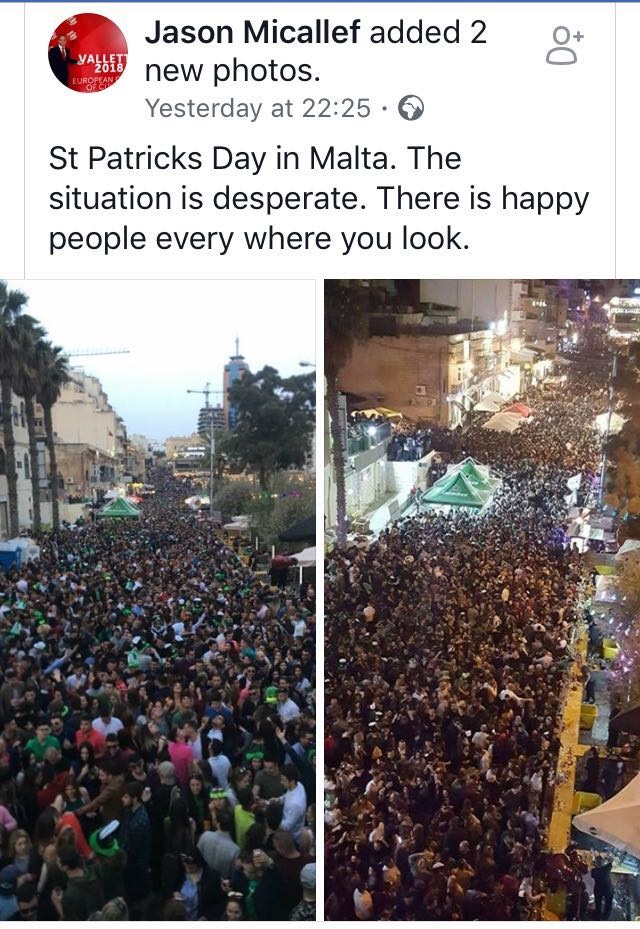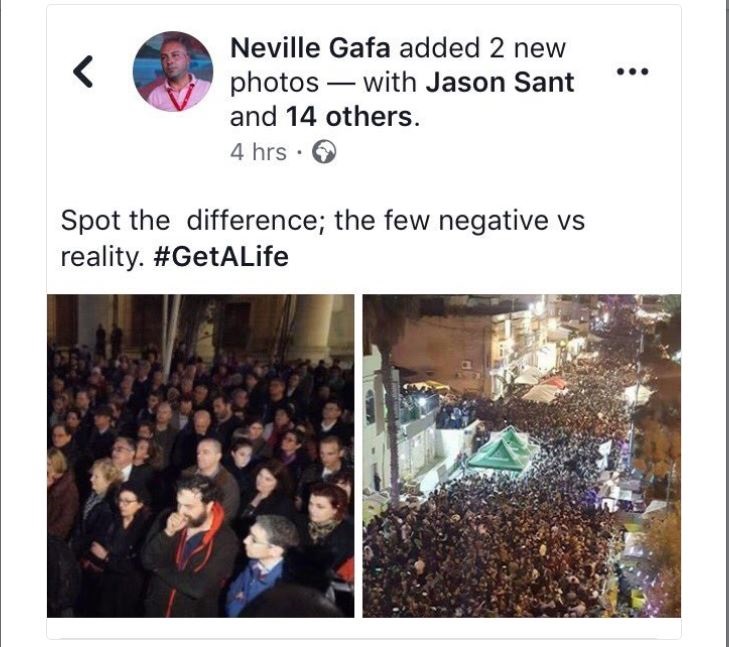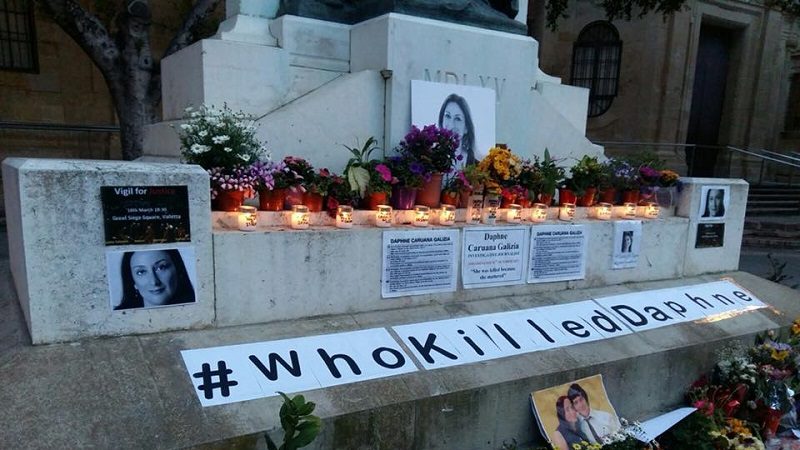Those who love to call assassinated journalist Daphne Caruana Galizia ‘a hate blogger’ spent a great deal of energy on social media last weekend mocking her last words and insulting those calling for justice. A few days later her memorial was destroyed.
These are not faceless trolls. It was Jason Micallef, the chairman of Valletta 2018 Capital of Culture, posting photos on Facebook of crowds in a piss-up on St Patrick’s Day and mocking the dead journalist’s last words, “the situation is desperate”.

Others followed, placing the St Patrick’s crowd photo next to one of the crowd that gathered at her memorial to mark the five-month anniversary since her death on Friday. Comments beneath the posts that continued to spread over the weekend ridiculed and insulted those calling for justice.

On Tuesday, the day Daphne was awarded a prestigious US award posthumously, her memorial in Malta was again destroyed in the dead of night. This is not the first time it has happened and it continues to happen because the government has not condemned this behaviour. It cannot because it is those people it has appointed and who deliver its message who are fuelling this.
They are paid by taxpayers to serve the country and yet they take to social media to mock and insult citizens.
Micallef said Daphne was “divisive, even after her death” and ordered the removal of a banner placed by activists marking five months since her assassination. The question is, who are the ones taking down banners and flowers in the dead of night and targeting citizens criticising their government’s failures?
In contrast, for the past five months since Daphne’s assassination, all citizens have done is hold peaceful protests and use the tools available in a democracy to make their voice heard. They do not have the same power and they do not have the same reach but their resilience, their refusal to be silenced, has proven its strength.
It is a power that cannot be destroyed, because the more it is attacked the stronger it becomes. And the longer it takes, the more the government is exposed.
When the world’s media threw a spotlight on Malta in the days after Caruana Galizia’s assassination, Prime Minister Joseph Muscat said he would ‘leave no stone unturned’. Big words for the world to be impressed.
No matter how big the scandal, a news story will die a natural death. Journalists and the world’s attention moves on to the next big thing. The show should have been over by now.
The problem for him is that the determination of citizens calling for justice, their refusal to forget, has ensured that the world’s eyes have remained on Malta. That was not supposed to happen. Five months later, there has been no justice and no change and the Prime Minister’s grand standing is assessed against this background.
It is not surprising that the measures to silence dissent have become increasingly desperate. The language used against the journalist to discredit her work when she was alive has now been revived and used after she was killed to remind people that she should be hated.
Why are they still spending so much energy trying to discredit her? It only serves to show her strength. She still has power over them, even after her death.
The more they try to erase her from memory, the more they fail. The more banners they take down and the more flowers they remove, the more urgent the call for change becomes.













